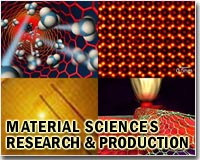 |
Chicago (AFP) March 10, 2011 Nestled among the sleek coffee makers and colorful new blenders at a major housewares US trade show were a handful of products which aimed to prove that buying something new can actually make less waste. There were the reusable water bottles and to-go coffee cups. Trendy portable bamboo cutlery and washable cloth sandwich bags. Concentrated cleaning supplies in a handy, reusable container ready to be filled with tap water. Even a miniature, manual laundry machine. But perhaps the biggest display of eco-friendly credentials was from Sodastream, an Israeli company that makes stylish countertop carbonation machines. The sprawling stand included a cage filled with over 10,000 empty bottles and cans -- about what the average US family goes through in five years -- surrounded by screens showing the environmental damage they cause. There are floating garbage islands in the world's oceans caused by some of the 340 billion bottles and cans which get dumped instead of recycled every year. There are birds caught in oil slicks because of all the oil needed to make plastic bottles and transport them to and from the stores. And there are the stinking smokestacks used to power the production of all those aluminum cans. "Sodastream eliminates the bottles and cans from your life," said Kristin Harp, marketing manager for Sodastream's US operations. "This is really reducing the waste you would generate." It contains a refillable carbonator that can make up to 130 liters (quarts) of soda by pumping carbon dioxide into a reusable plastic bottle filled with tap water. The company -- which traces its roots back 1903 when it began making seltzer bottles for the summer houses of the English aristocracy -- also sells a line of over 100 different flavor syrups to turn the sparkling water into soda. While such products can have an impact on the environment by changing consumer behavior, a significant number of companies are also working to reduce their carbon footprints -- and often their costs -- by incorporating more sustainable manufacturing practices. That often involves incorporating recycled materials, cutting water and energy use at their plants, and reducing packaging and the amount of shipping needed. There are toothbrushes made with recycled yogurt containers and sold in postage-paid envelopes so they can be sent back to be recycled. Squished sponges which expand with water. Cleaning cloths made from wood fiber. Handi-Foil commands about 70 percent of the US market for aluminum cooking pans and recently switched almost its entire line of consumer products over to 100 percent recycled aluminum. Since then, they've seen a six percent increase in sales even though the price had to be increased modestly, said Jim Oesterrvicher, senior vice-president of sales. "The process will hopefully get better as people start recycling more," he said. "There isn't enough material." One plastics recycler was on hand at the show's "Going Green" booth to talk to companies about how to incorporate recycled materials in their products and develop sustainability plans. "A lot of times companies get overwhelmed," said Jeffrey Rosenholtz, director of sustainability at Florida's Nextlife. "So we help business find low-hanging fruit." One of the key consulting functions Nextlife offers is lifecycle analysis, a scientifically verifiable way to trace environmental impacts. That will soon be critical for companies hoping to market themselves as eco-friendly, said Vicki Matranga, of the International Housewares Association. "Greenwashing is such an issue these days that the federal government is about to get involved with federal trade commission rules on what can be said or how it can be said," she told AFP. "In advance of that, companies are preparing their statements and trying to do their homework to make sure that what they say is verifiable."
Share This Article With Planet Earth
Related Links Space Technology News - Applications and Research
 Australian firm to open Malaysian rare earths plant
Australian firm to open Malaysian rare earths plantSydney (AFP) March 10, 2011 An Australian mining company said Thursday it plans to finish building a huge rare earths processing plant in Malaysia late this year, in a possible challenge to China's stranglehold on the metals. The Lynas Advanced Materials Plant (LAMP) in Kuantan is scheduled to begin producing rare earths, which are indispensable in making many high-tech products, in the third quarter of 2011, a Lynas s ... read more |
|
| The content herein, unless otherwise known to be public domain, are Copyright 1995-2010 - SpaceDaily. AFP and UPI Wire Stories are copyright Agence France-Presse and United Press International. ESA Portal Reports are copyright European Space Agency. All NASA sourced material is public domain. Additional copyrights may apply in whole or part to other bona fide parties. Advertising does not imply endorsement,agreement or approval of any opinions, statements or information provided by SpaceDaily on any Web page published or hosted by SpaceDaily. Privacy Statement |